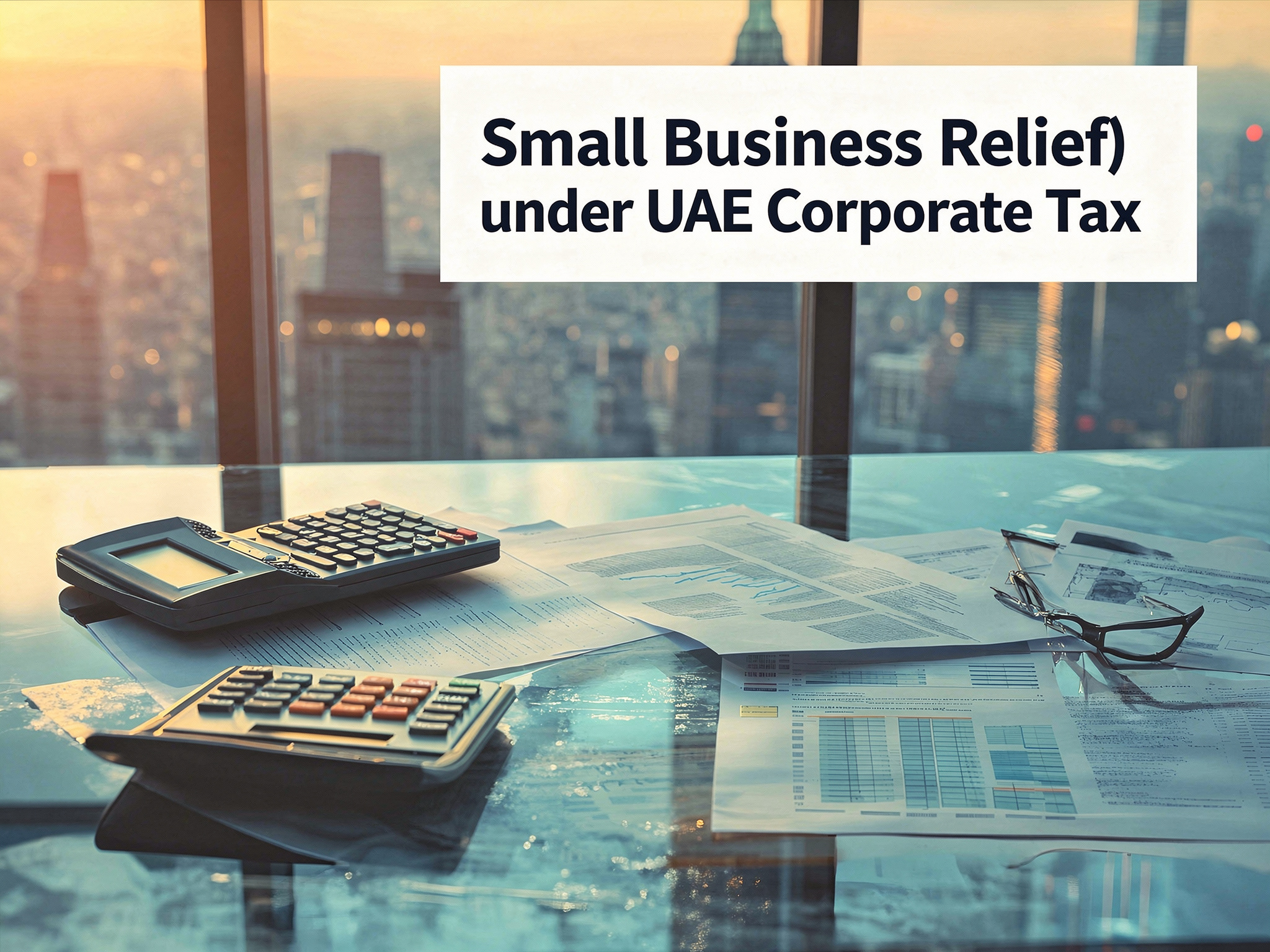As a gateway to global markets, the United Arab Emirates (UAE) continues to attract investors and entrepreneurs to international trade, investment, and innovation, establishing itself as a leading hub. Due to the UAE’s status as a tax-friendly environment, businesses need to understand taxable income and how corporate tax obligations apply to both resident and non-resident companies in the UAE.
The UAE Corporate Tax Law applies to both resident and non-resident companies, making it vital for foreign businesses in the UAE to understand their tax obligations. A non-resident is subject to UAE corporate tax if they have Nexus in UAE i.e. own immovable property and generate income or have a Permanent Establishment (PE) in the UAE such as through a branch office, project activities, or local agents. By complying with UAE FTA corporate tax rules, global businesses can streamline compliance, reduce risks, avoid penalties, and strengthen their tax planning strategies.
Having a clear understanding of UAE corporate tax obligations helps non-resident businesses remain compliant, avoid costly penalties, and build a sustainable presence in the UAE market. Jaxa Chartered Accountants, a leading auditing and accounting firm and UAE FTA-approved tax agent, provides expert advisory and compliance services to both resident and non-resident businesses, ensuring full support with UAE corporate tax compliance.
Who Qualifies as a Non-Resident Person in the UAE?
Under UAE corporate tax laws, a non-resident person is defined as an individual or business entity that is neither incorporated in the UAE nor has its central management located within the Emirates. According to the UAE Federal Tax Authority (FTA), non-resident companies and individuals are not officially classified as UAE tax residents but may still be subject to UAE corporate tax if they earn UAE-sourced income through a Permanent Establishment or Nexus in the country.
Examples of non-resident persons under the UAE Corporate Tax Law include:
- Entities or individuals without a Permanent Establishment (PE) in the UAE
- Businesses whose management and control are exercised outside the UAE
- Individuals or companies earning UAE-sourced income, such as consultancy fees, royalties, rental income, or service contracts
- Entities maintaining a nexus in the UAE by generating income from immovable property
Understanding these UAE FTA non-resident tax rules is critical for global investors and foreign businesses. Proper compliance with UAE corporate tax obligations helps non-resident companies avoid penalties, optimize taxable income, and operate smoothly in one of the world’s most business-friendly jurisdictions.
UAE Corporate Tax Obligations or Liability for Non-Resident Businesses and Individuals
Non-resident persons are subject to UAE corporate tax if they engage in certain taxable activities, such as:
- Generated UAE-sourced income: Non-resident persons may be liable for UAE corporate tax, such as earned income from sources like property in the UAE, offering business or professional services to UAE-based clients, or locally generated income within the Emirates.
- Permanent Establishment in the UAE: Includes offices, branches, or a fixed business location where business activities are carried out.
- Nexus in the UAE: A non-resident Juridical Person will be considered to have a nexus if they own property in the and generate income from the same.
If a non-resident meets any of the above conditions, they become liable to pay UAE corporate tax on their taxable profits. Under the UAE Corporate Tax framework, non-resident persons are subject to a 9% corporate tax rate on annual taxable income exceeding AED 375,000 that is attributable to their Permanent Establishment (PE) in the UAE. A 0% corporate tax rate applies to profits below this threshold.
Non-resident persons falling under UAE Corporate Tax must register with the UAE FTA, obtain a Tax Registration Number (TRN), and file a UAE corporate tax return within 9 months after the end of their financial year.
By complying with UAE corporate tax regulations, a non-resident person must remain compliant with UAE FTA regulations, which enables non-resident businesses to mitigate risks, penalties, and ensure smooth operation in the UAE investor-friendly market.
When Non-Residents Are Exempt from UAE Corporate Tax
A non-resident person in the UAE may be exempt from UAE corporate tax in certain special cases.. Exemptions for special cases are as follows:
- No UAE-sourced income: If your earnings are entirely outside the UAE, you may be exempt from UAE corporate tax.
- Withholding Tax Coverage: Non-resident businesses or individuals whose UAE income is covered by withholding tax may not be liable for further UAE corporate tax.
The UAE has signed a Double Tax Agreement (DTA) with multiple countries to save non-resident entities from being taxed on the same income twice. Depending on the DTA with their home country, non-resident entities may qualify for partial or entirely waived corporate tax in the UAE.
Non-Resident Corporate Tax Compliance in the UAE
Non-resident entities generating UAE-sourced income or engaging in business activities must comply with the UAE Corporate Tax Law by fulfilling key requirements, such as:
- Corporate tax registration with the UAE FTA.
- Accurate bookkeeping and record-keeping for all UAE income and expenses.
- File corporate tax returns in the UAE on time to stay compliant.
Please note:
It is important for non-resident entities to carefully assess their UAE corporate tax status, particularly if their business activities create a Permanent Establishment (PE) or establish a nexus in the UAE. The UAE FTA considers that even limited or short-term business activities may give rise to corporate tax liability. Failure to comply with UAE corporate tax regulations can lead to penalties, legal risks, and reputational damage. Therefore, early tax planning and awareness are essential for non-resident businesses operating in the UAE.
Seeking assistance from the best corporate tax consultant in the UAE can help non-resident persons evaluate the tax provisions and ensure full compliance with UAE corporate tax regulations.
Jaxa Auditors, Your Trusted Corporate Tax Advisor
Ensuring compliance with UAE corporate tax can be daunting, as the regulations are complex and challenging for both resident and non-resident businesses. To manage these obligations effectively, turning to an expert corporate tax consultant in the UAE and an UAE FTA certified tax agent, such as Jaxa Chartered Accountants, is highly recommended. With over 18 years of proven expertise and in-depth knowledge of UAE tax laws, our seasoned corporate tax advisors provide practical insights that help businesses stay compliant while unlocking new growth opportunities in the UAE market.
Don’t leave compliance to chance- Jaxa Auditors offers end-to-end corporate tax solutions from UAE corporate tax registration, corporate tax filing, audit, compliance, including accounting and bookkeeping, VAT, and audit.
Partner with Jaxa, your trusted corporate tax advisor in the UAE. From compliance to strategic planning, we simplify the process for both resident and non-resident businesses. Get your CONSULTATION today.





